Gks White Sesame Oi 200ml
In Stock
Payment. Payment upon receipt of goods, Payment by card in the department, Google Pay, Online card, -5% discount in case of payment
Warranty. The Consumer Protection Act does not provide for the return of this product of proper quality.
Description
Sesame Oil
Sesame oil is an edible vegetable oil derived from sesame seeds. Besides being used as a cooking oil in South India, it is used as a flavour enhancer in Middle Eastern, African, and Southeast Asian cuisines. It has a distinctive nutty aroma and taste. The oil extracted from Sesame seed is popular in alternative medicine, from traditional massages and treatments to the modern day. This oil is popular in Asia and is also one of the earliest-known crop-based oils, but worldwide mass modern production continues to be limited even today due to the inefficient manual harvesting process required to extract the oil.
Nutritional Value of Sesame Oil
One tablespoon (13.6 g) of Sesame oil serves 120.2 Calories. The total fat content is 13.6 g, out of which saturated fat content is 1.9 g and monounsaturated fat is 5.4 g. Sesame oil is rich in linoleic acid and oleic acid. The vitamin E content is 0.2 mg (2%) and vitamin K is 1.8μg (2%). There is a predominance of gamma-tocopherol over the other isomers of Vitamin E. the oil do not contain any carbohydrates, proteins and fibres. The amount of Choline in the oil is 1%.
Helps in treats premature graying of hair
Massaging of hair and scalp with sesame oil can help in preventing premature graying and helps in retaining the natural colour of hair for longer. In fact, sesame oil has hair darkening properties. Regular use of this oil can help in keeping hair dark and healthy.
Helps in Rheumatoid Arthritis
Sesame seeds are a powerhouse of vitamins and minerals. They are loaded with copper, zinc, magnesium, iron and calcium. While sesame oil may not contain as much nutrients as the seeds since some amounts of it are lost during the extraction process, they still retain most beneficial properties. It is particularly known for its zinc and copper contents, which help in the production of red blood cells, blood circulation and metabolism. Copper is also known for its anti-inflammatory properties, and helps reduce arthritis pain, swelling of joints and strengthens the bones.
Helps in lowering of blood pressure
Sesame oil was used commonly in cooking since the ancient times. According to a study by an Indian researcher from Annamalai University and published in Yale Journal of Biology and Medicine, “Sesame oil as edible oil lowers blood pressure, decreases lipid peroxidation, and increases antioxidant status in hypertensive patients.
Helps to Fight Stress and Depression
Sesame oil contains an amino acid known as tyrosine, which is directly connected to serotonin activity. Serotonin is a neurotransmitter which impacts our mood. An imbalance of it could lead to depression and stress. According to experts, incorporating sesame oil in diet help in the production of serotonin which in turn help in feeling positive and keeping chronic stress away.
Oil Pulling for improving oral health
Oil pulling is an ancient Ayurvedic technique which is followed for promoting oral health and removing plaque. A tablespoon of oil is taken on an empty stomach and swished around in the mouth for 20 minutes and then spat out. It is believed to remove toxins from the body. Sesame oil is commonly used for this practice because of its medicinal properties.
Helps in maintaining good skin health
Sesame oil is valued in Ayurveda because of its antibacterial and anti-inflammatory properties. It is commonly used in beauty treatments for the skin because it is an excellent moisturiser, promotes regeneration of healthy skin, has anti-aging properties, and is considered to be a natural SPF. It is also used extensively as massaging oil because of its warming property and its ability to seep deep into the skin.
Helps in detoxification of skin
The antioxidants present in sesame oil helps in detoxifying one’s skin. The antioxidants absorb all those water-soluble toxins, thus enabling detoxification. Washing of face regularly with a mixture of ½ cup sesame oil, ½ cup apple cider vinegar and ¼ cup water helps detoxify skin and provides a healthy and glowing skin.
Acts as a natural anti-inflammatory agent
Sesame seed oil has anti-inflammatory properties which makes it an innate healing agent. The antibacterial properties help in fighting various bacteria, including staphylococcus, streptococcus, and athlete’s foot fungus, affecting the skin. A mixture of sesame seed oil and lukewarm water is an effective home remedy for vaginal yeast infections.
Helps in preventing diabetes
Sesame seeds are a good source of magnesium as well as various other nutrients. All these together enable sesame to lower the levels of glucose in blood, thereby thwarting the risk of diabetes. People suffering from diabetes can choose sesame seedoil for cooking.
Helps in natural cure for anemia
Sesame oil has a huge content of iron. That is why they are one of the most recommended home remedies for anemia as well as other iron-deficient problems.
Has innate anti-cancerous properties
Sesame oil contains magnesium, a mineral that has a rich anti-cancerous reputation. These also contain an anti-cancer compound known as phytate. The synergic actions of these ingredients make sesame oil reduce the risk of colorectal tumorsand, even preventing their onset.
Helps in improving eye health
According to traditional Chinese medications, eyes and liver shared a very cordial relationship. It was believed that liver could store blood, and branches of liver delivered blood to eye, enabling its proper functioning. Sesame oil is a natural tonic for liver that enables better flow to blood, which, in turn is believed to nourish eyes. These therapeutic effects can also treat blurred vision, tired and sore eyes. Regularly massaging your eye lids with sesame oil can also help in erasing dark circles and wrinkles.
Uses of Sesame Oil
Sesame oil has been used for centuries in Asian cuisine. It also has medicinal purposes, especially in Ayurvedic medicine, where it is used as a base oil for about 90% of the herbal oils. In Ayurvedic therapy, sesame oil is renowned for its ability to strengthen and detoxify the body and ensure the proper functioning of all the vital organs. It’s also used in sacred and religious ceremonies. Today, sesame oil is a common component of skin and massage oils, hair care products, cosmetics, soaps, perfumes and sunscreens. Sesame oil has great moisturizing, soothing and emollient qualities.
Side-Effects & Allergies of Sesame Oil
The side effects of using sesame oil in diet may include increase in body weight, risks of colon cancer, diverticulitis, allergic reactions among the people who are hypersensitive to it, anaphylaxis, appendix infection, diarrhoea, skin rashes, hair loss, and even miscarriage.
Cultivation of Sesame Oil
Sesame was cultivated more than 5000 years ago as a drought-tolerant crop and it was able to grow where other crops failed. Sesame seeds were one of the first crops processed for oil. Sesame was cultivated during the Indus valley civilization and was the main oil crop of those time. It was probably exported to Mesopotamia around 2500 BC. Sesame oil is thought to have originated in the Indus Valley of North India, but later spread from there throughout Asia.

Gks White Sesame Oi 200ml
Original price was: ₹175.00.₹150.00Current price is: ₹150.00.In Stock


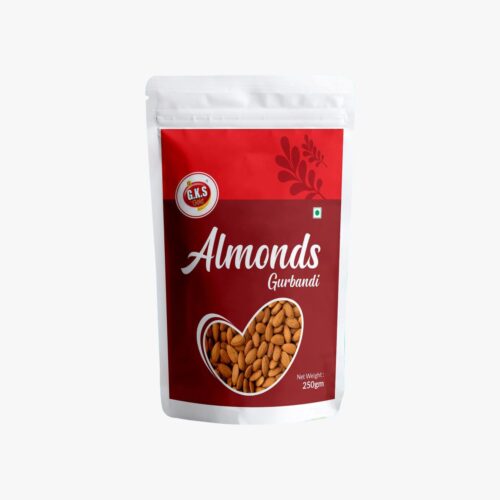
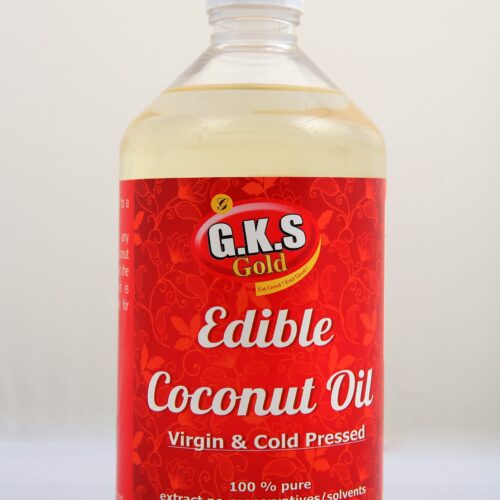

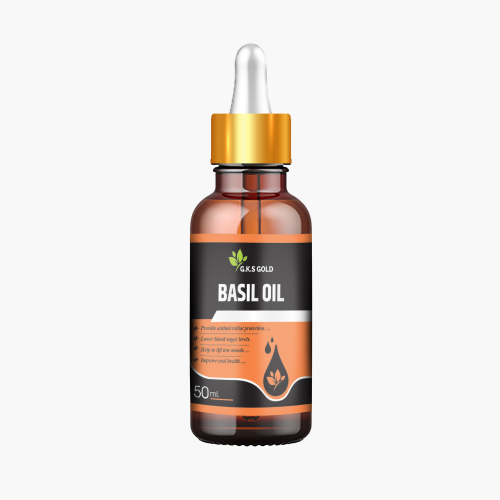

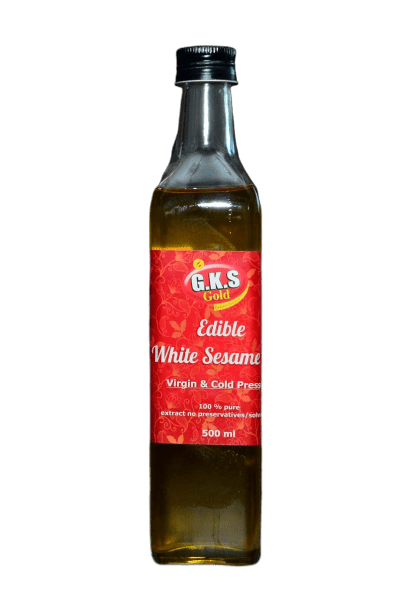
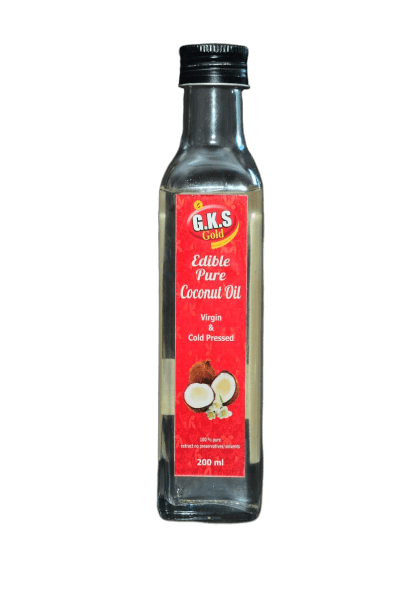
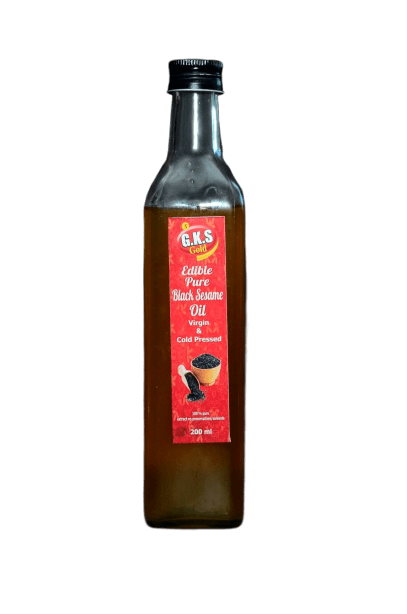
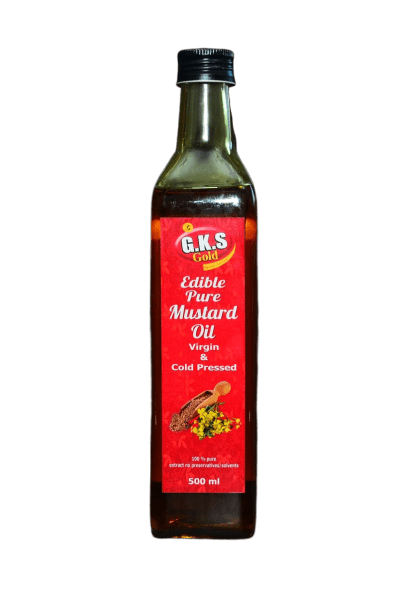



Reviews
There are no reviews yet.